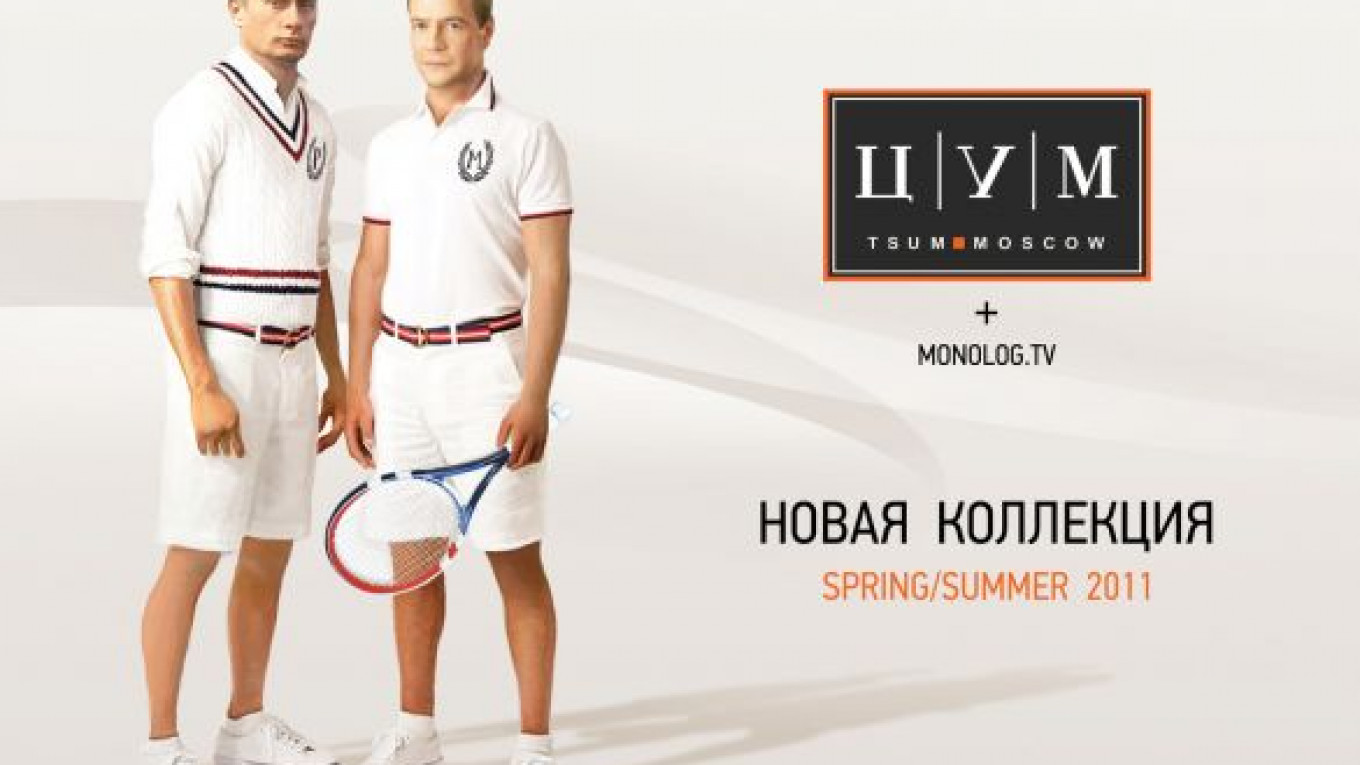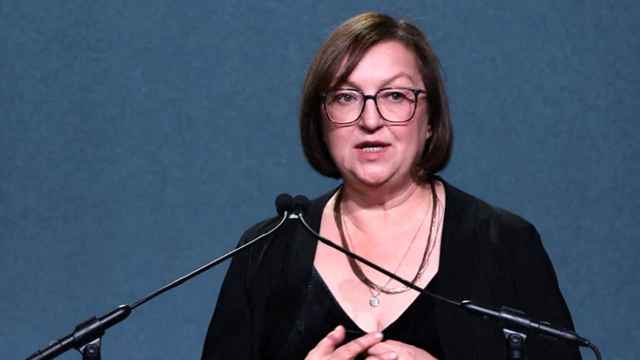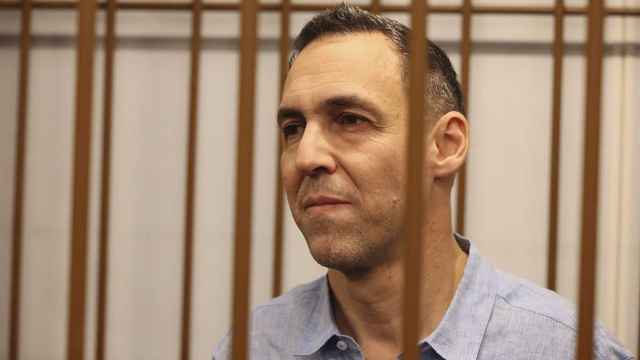An anonymous street artist took credit Tuesday for a mock advertising campaign that recast Dmitry Medvedev and Vladimir Putin as bare-legged male models sporting a tennis racket.
The fake fashion industry ads, adorned with the logo of the TsUM department store, popped up near the store Monday, raising the eyebrows of passers-by and TsUM management alike.
A TsUM spokeswoman said the department store had nothing to do with the billboards, which were taken down late Monday.
A representative for Putin also appeared puzzled, telling Interfax that the prime minister did not authorize the use of his image in the advertisement.
The billboards did not, in fact, advertise any clothing brand, and the only inscription other than the TsUM logo was the address for the web site , which carries images used in other ironic outdoor campaigns.
The site's owner remained unidentified and did not reply to an e-mailed request for comment. But he confirmed being behind the project in an with the BBC Russian Service.
"What I do is street art, which demonstrates my view on what is happening around me," the anonymous artist said Tuesday.
He said Putin and Medvedev were "far removed from show business and fashion," which prompted him to show them as "hip and chill dudes who follow trends and lead an active life."
Medvedev and Putin, in fact, are no strangers to high living. Medvedev received an iPad from Apple founder Steve Jobs last year, months before sales started in Russia, while Putin is regularly seen sporting wristwatches worth tens of thousands of dollars.
Analysts were divided on the message behind the campaign.
"I see it as an attempt to show people in power as more human," Vedomosti fashion critic Eduard Dorozhkin said by telephone.
But independent political expert Stanislav Belkovsky saw the campaign as self-promotion for the artist, not a political statement. "Putin and Medvedev have turned into a brand, and while they wouldn't like it, it was an attempt to cash in on their popularity," he said.
Modern street art, popularized in the West by artists such as Bristol-based Banksy — whose real identity also remains unknown — often combines political messages with ironic mass culture references, much like the Monolog.tv campaign.
This spirit is present in other works at Monolog.tv, such as a poster of Libyan leader Moammar Gadhafi complete with a phone number and the message, "Looking for an apartment" — a reference to the exile that Gadhafi faces if Russia and Western powers succeed in facilitating his ouster.
Another poster shows a glamorous mascara-wearing man in a border guard uniform above the slogan, "Let's cross the border." The poster appeared on the street Saturday when border guards, who share an aggressive anti-gay stance typical of many Russians, noisily celebrated their professional holiday.
A Message from The Moscow Times:
Dear readers,
We are facing unprecedented challenges. Russia's Prosecutor General's Office has designated The Moscow Times as an "undesirable" organization, criminalizing our work and putting our staff at risk of prosecution. This follows our earlier unjust labeling as a "foreign agent."
These actions are direct attempts to silence independent journalism in Russia. The authorities claim our work "discredits the decisions of the Russian leadership." We see things differently: we strive to provide accurate, unbiased reporting on Russia.
We, the journalists of The Moscow Times, refuse to be silenced. But to continue our work, we need your help.
Your support, no matter how small, makes a world of difference. If you can, please support us monthly starting from just $2. It's quick to set up, and every contribution makes a significant impact.
By supporting The Moscow Times, you're defending open, independent journalism in the face of repression. Thank you for standing with us.
Remind me later.






